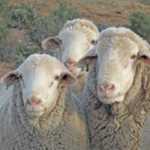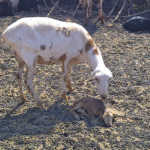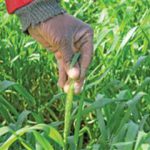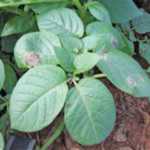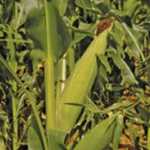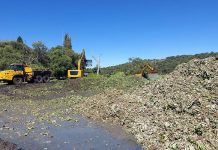Home Search
drought - search results
If you're not happy with the results, please do another search
Poor soil increases problems
I read the article ‘Adopt sustainable practices’ (27 July, pg 8) with interest.
The latest South African scenarios
South Africa could go down a number of paths in the next five years. Strategist and author Clem Sunter outlined these
scenarios at the recent PestBiz congress in Durban.
How much more can we take?
“South African agriculture is a healthy, vibrant industry, and will remain so if we only keep the politicians and politics out of the business.
Brahmans come in from the cold
Brahman stud breeder James Prinsloo runs a thriving cattle enterprise on the Mpumalanga highveld where winter temperatures can fall to -12°C. Known for their resilience to heat and drought, the Brahman of the Jamica stud prove the commendable adaptability of the breed. Annelie Coleman reports.
Bringing back the Afrino
This easy-care, dual purpose breed thrives in the harshest conditions, offers high net profits and is a pleasure to farm. Roelof Bezuidenhout reports.
Farming for the urban rich
Many a successful businessperson or professional is turning to farming these days. Veteran agricultural journalist George Nicholas thinks he knows why.
Supporting a family, week by lonely week
Malekaleke Maila farms with Pedi sheep on communal land in Limpopo. Unable to run his flock near his village, he is forced to spend each week away from home. Yet, through careful management, he earns a reasonable living and is paying for his children’s studies. Peter Mashala spoke to him.
Wheat farming in the Western Cape
Pierre Heydenrych, a fourth generation wheat farmer in the Western Cape, talks about the difficulties of the weather and the low wheat price.
Biofuel breakthrough, but the devil is in the detail
The compulsory blending of a minimum of 5% biofuel with mineral diesel and 2% to 10% with bio-ethanol announced in the Government Gazette on 23 August has been hailed as a breakthrough by the agricultural industry.
Late blight: fast & very destructive
Late blight in potatoes is caused by airborne spores of the Phytophthora infestans fungus. The disease manifests as irregular dark lesions on the stems and leaves and spreads quickly.
Maize outlook 2012/2013
World maize consumption is expected to increase by 31,9 million tons this season. Loffie Brandt of Absa AgriBusiness reports on these and other trends both locally and globally.




